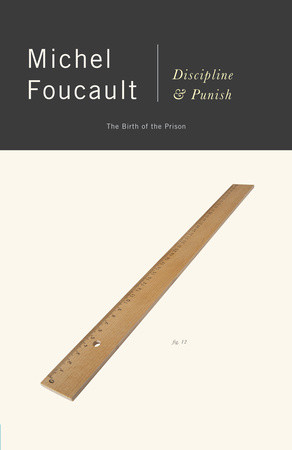Foucault, Michel. Discipline and Punish: The Birth of the Prison. 2nd edition. Translated by Alan Sheridan. New York: Vintage Books, 1995.
Discipline and Punish, which begins with a famously gruesome description of the execution of the would-be assassin of King Louis XV, Damiens, summarizes one of Foucault’s most well-known and attractive ideas: theorists can help us to see the scope and extent of the surveillance under which the modern body lives and become docile, or pliant to power. Foucault elaborates a “microphysics of power” that focuses attention on carceral power, an empirical endeavor in which Foucault joins other French thinkers such as Tocqueville and Durkheim. Durkheim’s review of punishment theorized a gradual quantitative decline in the use of capital punishment, as despotic monarchies became constitutionalized in the eighteenth century, and a qualitative turn from corporal punishment to incarceration. Foucault agrees with Durkheim that one system of punishment has replaced another, but he disagrees with the inference that repressive power in the classical and contemporary world is more mild and humane than in pre-enlightenment society. “Not to punish less, but to punish better”: that, writes Foucault, is the true maxim of modern punishment.
Online:
Knopf Doubleday
Amazon
Google Books

